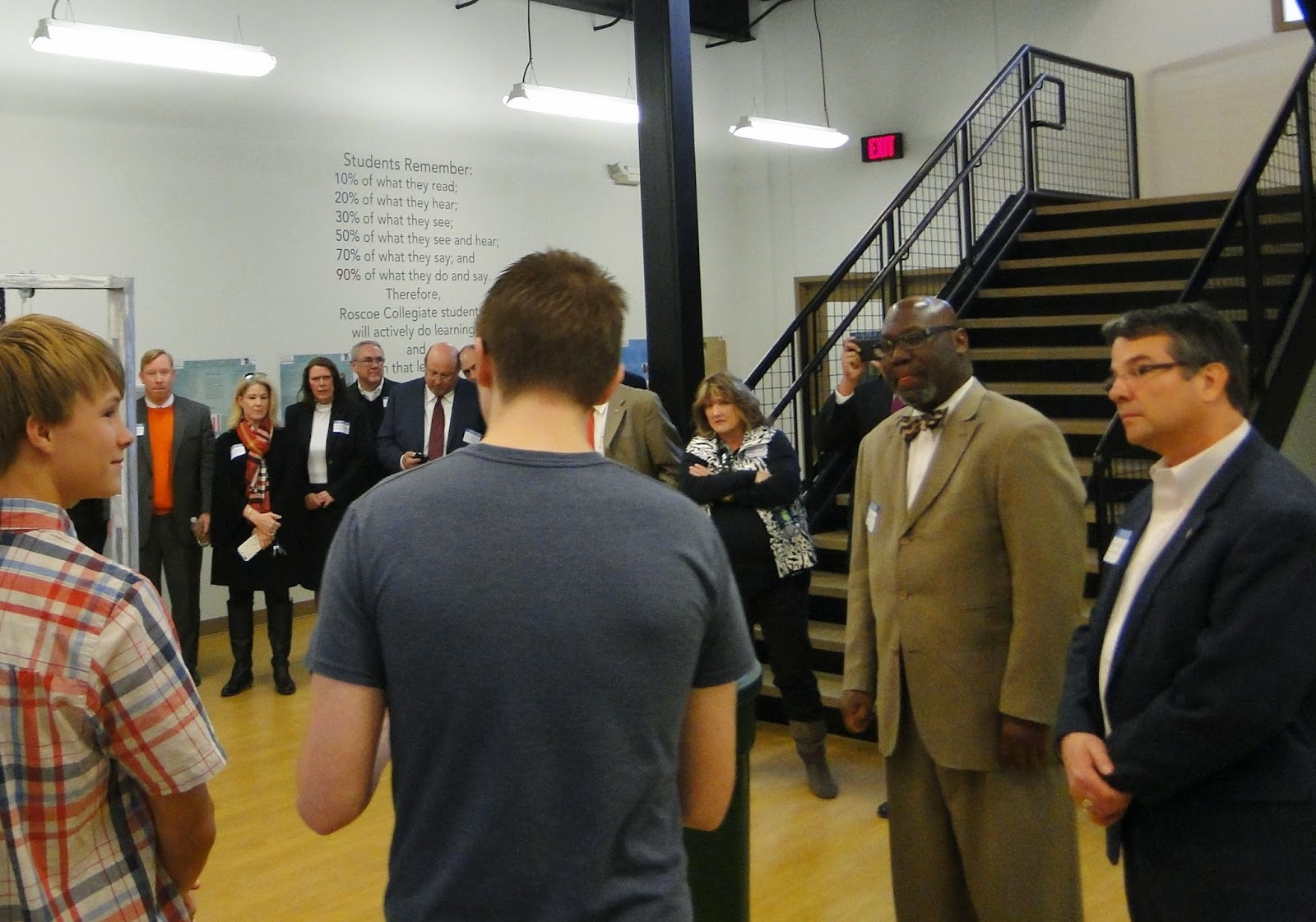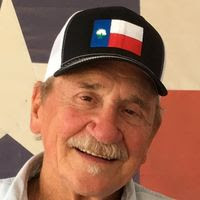 |
| Charles Ratliff (Photo courtesy of Mike Ratliff.) |
Ex-Plowboy Charles Ratliff, longtime announcer for Plowboy home football games and faithful fan, will be honored next Friday, March 6, during the Blackland Relays when his name will go on the Press Box in the east stands of Plowboy Field. He began announcing Plowboy football games in 1967 and has been as regular as clockwork since then, missing only a few games to see a granddaughter perform as cheerleader at another school. He will also receive a plaque commemorating his long service and loyalty to the school.
The ceremony is set to begin at 2:30pm at Plowboy Field, and everyone is invited to be on hand to help give Mr. Ratliff a sendoff as he retires from his longtime tenure as the voice of the Plowboys.
--o--
 |
| This truck slid off the road on I-20 East about a mile west of town Sunday afternoon. (Photo by Felix Pantoja.) |
--o--
 |
| 1004 Cypress Street |
--o--
 |
| Sleet and icy conditions on Monday. |
Monday was the coldest day of all with a high of 22°, a low of 17°, grey skies, and light sleet. Yesterday morning was more of the same with a low of 21°, but then the clouds broke up somewhat in the afternoon and the temperature climbed to 40°. Last night around midnight, anywhere from nothing to .15" or so fell, depending upon location.
Today should be nicer with a forecast high of 59°, but a cold front will move in tonight with north winds of 10-25mph and a low of 30° tomorrow morning. Tomorrow’s high will be around 38°, and there’s a 20% chance of snow tomorrow night. Friday’s high will be only around 29° with a 40% chance of precipitation and a low Saturday morning of 22°. Saturday’s high will be about 45° with a 40% chance of rain. Sunday will be warmer again with a high of 64° and a low of 43°.
--o--
[Editor's Note: With slight modifications, this article originally appeared in the May 4, 2011, posting of the Roscoe Hard Times.]
 |
| The downtown alley where Bill Dawson shot A. J. Parker. |
Seeing Dawson disarmed, Parker returned to the scene on his way to the Young Hospital a half block away, and, as he staggered past, told Sanders to call Sheriff Tom Wade. Dawson, seeing Parker still on his feet, told Sanders to give him his gun back and let him finish the job.
Dawson then apparently went through the back door to Haney’s into the drug store, where he gave himself up to Deputy Sheriff Pat Mayes. He was taken to the Nolan County jail in Sweetwater and charged with assault with intent to murder, and bond was set at $5000.
In the meantime, Mayor Parker walked to the hospital and immediately began to receive treatment from Dr. J. W. Young. Initially, Dr. Young expressed optimism about the mayor’s recovery, giving him a 75% chance of survival. That night he operated, removing a bullet from Parker’s chest while allowing another to remain just above the stomach. Unfortunately, the mayor’s condition continued to worsen on Saturday, and on early Sunday morning at about 3 a.m., a day and a half after the shooting, he died.
His funeral was held on Monday, June 7, at the Community Tabernacle in Roscoe with Sam Young of Sweetwater delivering the funeral oration. He praised Parker, a Methodist, as a good citizen, an advocate of law and order, and a churchman who often expressed his belief in religious principles. Others speaking included Parker’s father-in-law, Rev. G. W. Parks, Roscoe’s former Baptist pastor, Methodist minister Rev. W. B. Swim, and Baptist pastor Rev. J. N. Easterwood. Pallbearers were City Council members Barna Haney, R. E. Harwell, W. E. Kirkland, and Turner May; City Secretary W. P. Copeland; and Hark Haney.
 |
| Mayor A. J. Parker Nightwatchman Bill Dawson |
In 1922, he married Ora Parks, the daughter of the town’s Baptist minister, Rev. G. W. Parks. They subsequently had two children, Arthur, Jr., 14 in 1937, and Shirley Ann, 11. The Mayor’s father, J. J. Parker, had been one of the original city aldermen when Roscoe was incorporated in 1907.
Bill Dawson, 60, was a cowboy and rancher for twenty years in Tom Green and Coke Counties before moving south of Roscoe six years earlier to ranch with Bob Scott of Colorado City. He won third place in the old man’s calf roping contest at the 1934 Texas Cowboy Reunion in Stamford and later won first place in several other rodeos. In November 1934, two and a half years earlier, he became Roscoe’s nightwatchman, a position that made him the city’s principal law enforcement officer after the sun went down. He was married, and his wife ran a café in downtown Roscoe.
 |
| Front page of the Abilene Reporter-News the day after the shooting. |
The day before the shooting, Dawson received a letter from the Mayor informing him that he had been fired by order of the City Council and replaced by City Marshal Leslie Butler, but Dawson refused to step down, saying the firing was unauthorized. (City Councilman Barna Haney told the Abilene Reporter-News that the Council had met the previous week before the firing and had not been in session since, i.e., that the City Council had not ordered the firing.)
At the court hearing held on June 19, two weeks after the shooting, Mrs. Dawson testified that Parker had come to her café earlier in the day and asked her what her husband was going to do about the letter, saying that the city wasn’t big enough for both of them. She also said that City Commissioner Ralph Henson told her that Parker had said, “The town is not big enough for both of us. While I’m mayor, I’ll run the town to suit me, if it don’t suit anyone else. Dawson will leave, or I’ll put his light out.”
Roscoe farmer O. J. Beinhauer testified that Dawson told him in the café he “wasn’t going to stand for the canning—that it would be different if the city commission had done it, but that he would sooner kill one man than let him get by with such a thing.” Beinhauer also quoted Dawson as saying, “If I killed him, he wouldn’t have enough friends to carry him off the street.” Mrs. Dawson testified that right after the shooting her husband said to her, “I shot ‘Red’ Parker, Mother. I had to do it. I wasn’t going to let him beat me up.”
The hearing resulted in District Judge A. S. Mauzey setting Dawson’s bail at $10,000 and charging him with the malicious murder of the mayor.
On August 3, Mrs. A. J. Parker was elected Mayor of Roscoe to succeed her deceased husband. She ran unopposed.
On Tuesday, September 28, the trial began in the 32nd District Court in Sweetwater with Judge Mauzey presiding. The prosecution was led by E. T. Brook of Abilene, while Dawson’s defense counsel was Temple Dickson, Jr., who later became a state representative.
The prosecution argued that Dawson had killed the mayor in cold blood and appealed to the jury to assess the death penalty, citing Dawson’s expressed hatred for the mayor. Brook argued that testimony indicated the trouble that led to the shooting had been brewing in Dawson’s mind for some time. He emphasized that Dawson’s request to X. B. Sanders to give him the gun so he could finish the job clearly indicated his murderous intent.
Dickson, on the other hand, based his case on self-defense, citing threats made by Parker, including one right before the shooting in which he said he would give Dawson a “licking.” Dickson also argued that Dawson was unbalanced and fearful since an earlier altercation with a group of drunks who beat him up when he attempted to apprehend them. Referring to Dawson’s advanced age, he told the jury, “Any sentence you may impose on the defendant means death as he will not live long if sent to prison.”
The jury deliberated for seventeen hours before reaching their verdict of guilty, and on October 2 the judge sentenced Dawson to fourteen years in the state penitentiary. He apparently stayed in the Nolan County jail until April 11, 1938, when he was received by Huntsville prison, according to prison records in Austin. The same records indicate that he was discharged on June 12, 1948. In prison terminology ‘discharged’ can mean either ‘released’ or ‘died’, so it is not clear which applied in his case. By that time, he would have been 71 years old, so either is possible.
--o--























